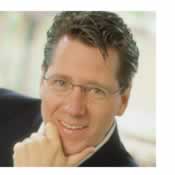If I speak in the tongues of men and of angels, but have not love, I am only a resounding gong or a clanging cymbal. — New International Version
We couldn’t count how many times we have stood before a group of couples and talked about talking. In nearly every conceivable corner of North America and in several places around the world, we have demonstrated techniques and tools for improving a couple’s communication. And it would be impossible to add up the number of times a couple has come into our counseling office after a communication meltdown in their marriage. “We just don’t communicate” is the common refrain. What’s more, it would be embarrassing to see the tallies on the number of times we have personally failed in our marriage to follow our own advice when it comes to “talking our talk.” Yet we — and nearly every couple we have the privilege of working with — keep trying. Why? Because communication is the lifeblood of marriage. More than any other skill, the competence to say what we mean and understand what we hear is paramount to building a lasting relationship. Without effective communication we lose the ability to understand and be understood. Without communication we lose at love.
No wonder Paul begins his litany of love by saying: “If I speak . . . but have not love, I am only a resounding gong or a clanging cymbal.” In other words, it doesn’t matter how well-spoken and eloquent you are. You may have mastered the technique of “reflecting your partner’s feelings” before making your own point. You may be great at using “I” statements (rather than the accusatory “you” statements) in your conversation. You may be naturally gifted as a powerfully persuasive and charismatic communicator. You may speak like an angel, but if you don’t walk your talk, if you don’t have love in your heart, you might as well bang pots and pans together. Because that’s how annoying you will become.
As a psychologist (Les) and a marriage and family therapist (Leslie), we can tell you that almost every communication problem in marriage can be traced to a lack of love. Not that the couple isn’t “in love.” It’s just that they aren’t working to be more loving, less selfish. Think about it. Whenever you set aside self-seeking ways, communication problems fade. Of course, couples don’t often want to hear this. They are interested in new verbal strategies, more techniques and tools. And in most counseling offices that’s exactly what they get. But ultimately tools by themselves don’t work. Why? Because you can practice all the communication techniques in the world and still end up sounding like nothing more than an annoying clang. On a few occasions we have tried to write our own interpretation of Paul’s love poem. Here’s the first sentence of one of our versions: “If I go to marriage seminars and read marriage books to learn new verbal strategies, and I never set aside my own self-centered desires, I’m nothing more than an annoying tape recorder that replays my partner’s messages.”
Communication skills are important to learn — no doubt about it — but they fall flat without love. They turn into tools of manipulation. “You’re just doing that thing our counselor said to do” is the response a new technique often elicits in the absence of love.
So before you try to tune up your talk, overhaul your heart. Allow love to seize every word, every syllable. Invite love to lay claim to your conversation. Forgo the annoyance of clanging cymbals and enjoy the full rhapsody of your love song. 1 Corinthians 13 NIV
And now I will show you the most excellent way. If I speak in the tongues of men and of angels, but have not love, I am only a resounding gong or a clanging cymbal. If I have the gift of prophecy and can fathom all mysteries and all knowledge, and if I have a faith that can move mountains, but have not love, I am nothing. If I give all I possess to the poor and surrender my body to the flames, but have not love, I gain nothing.
Love is patient, love is kind. It does not envy, it does not boast, it is not proud. It is not rude, it is not self-seeking, it is not easily angered, it keeps no record of wrongs. Love does not delight in evil but rejoices with the truth. It always protects, always trusts, always hopes, always perseveres.
Love never fails. But where there are prophecies, they will cease; where there are tongues, they will be stilled; where there is knowledge, it will pass away. For we know in part and we prophesy in part, but when perfection comes, the imperfect disappears. When I was a child, I talked like a child, I thought like a child, I reasoned like a child. When I became a man, I put childish ways behind me. Now we see but a poor reflection as in a mirror; then we shall see face to face. Now I know in part; then I shall know fully, even as I am fully known.
And now these three remain: faith, hope and love. But the greatest of these is love.
From Love Is…, Copyright © 1999 by Les & Leslie Parrott and published by Zondervan. Used with permission.



 Les Parrott III, Ph.D., is founder of RealRelationships.com and a Professor of Psychology at Seattle Pacific University. He is also co-creator, with his wife Leslie, of eHarmony Marriage. Les is an award-winning author of more than a dozen best-selling books including High-Maintenance Relationships, The Control Freak, 3 Seconds, Becoming Soul Mates, Your Time Starved Marriage and Saving Your Marriage Before It Starts.
Les Parrott III, Ph.D., is founder of RealRelationships.com and a Professor of Psychology at Seattle Pacific University. He is also co-creator, with his wife Leslie, of eHarmony Marriage. Les is an award-winning author of more than a dozen best-selling books including High-Maintenance Relationships, The Control Freak, 3 Seconds, Becoming Soul Mates, Your Time Starved Marriage and Saving Your Marriage Before It Starts.








